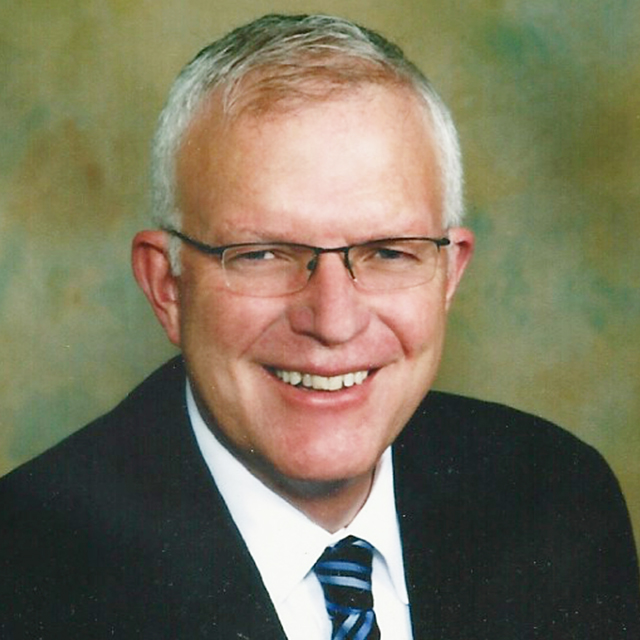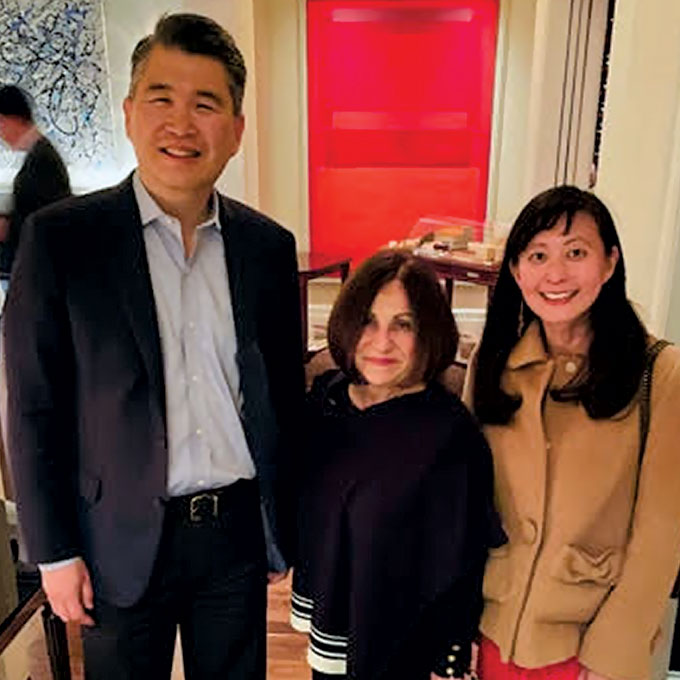Fellowship Funds 'Prolific' Researcher
After seeking treatment at Johns Hopkins, Toni Boucher funded a first-of-its-kind fellowship for a postdoctoral orthopaedic trauma researcher and clinician.

After receiving treatment at Johns Hopkins for an injury, Antonietta “Toni” Boucher — the first selectwoman of Wilton, Connecticut — funded an orthopaedic trauma fellowship.
When Toni Boucher fractured her humerus in July 2022, she chose to travel far from her Connecticut home for treatment. She went to The Johns Hopkins Hospital in Baltimore, where she and her husband had forged close connections years earlier during treatment for his prostate cancer.
This time, Boucher’s contacts at Johns Hopkins advised her to see Babar Shafiq, M.D., Johns Hopkins orthopaedic surgeon and associate professor in the Department of Orthopaedic Surgery.
Boucher — a former Connecticut state senator and longtime figure in local politics in the town of Wilton, where is she now the first selectwoman (mayor) — was injured in an unusual accident. A car that was supposed to be parked started rolling backward, threatening to roll over her friend, and when Boucher acted on instinct to slow it, the car ran over her right humerus. Setting the bone in place to heal required expertise and precision.
“It was putting together plates and screws almost like a puzzle, so it all fits back together,” Boucher says.
During her visits to Shafiq’s clinic, Boucher met Diane Ghanem, M.D., who had come to Johns Hopkins from Lebanon for a postdoctoral research fellowship in orthopaedic trauma.
“I was so impressed by her level of knowledge, care and dedication,” Boucher says.
When Boucher learned that Ghanem’s fellowship lacked funding to continue for a second year, her philanthropic instincts kicked in. In the past, Boucher and her husband were faithful donors to the Brady Urological Institute at Johns Hopkins for prostate cancer research.
With the fellowship in Shafiq’s division, Boucher saw another opportunity to donate to important research. She made a gift to fund Ghanem’s second year in the trauma division — and then her third and final year.
In addition to her clinical work with Shafiq, Ghanem is involved in a broad range of research projects focusing on patient outcomes after traumatic injuries, as well as studies on biomechanics and the use of artificial intelligence in patient education. Shafiq describes her publication output as “prolific” for her short time at Johns Hopkins.
“I could see the value Ghanem was bringing to Hopkins and also all the knowledge she was acquiring that she could later pass on to others,” says Boucher.

For Ghanem, the donation helps her build the medical career she found as a second act, after playing pro soccer and futsal (a soccer-based sport on hard court) for the Lebanese Football Association. Though her father is an orthopaedic surgeon, she had no aspirations to follow in his footsteps until she started realizing how much she was unconsciously applying principles of orthopaedics to her sports injuries.
“I’d get injured and I’d want to heal quickly and get back to the pitch, so I’d always read up on how to treat myself and get out there faster,” she says.
Ghanem attended medical school at the American University of Beirut before securing the fellowship at Johns Hopkins. In June of this year, she was appointed a teaching associate for a summer introductory surgery course at The Johns Hopkins University.
As Ghanem plans to apply to residencies next year, both she and Shafiq hope the postdoctoral orthopaedic trauma fellowship — the first of its kind at Johns Hopkins — will continue.
“I’m the first postdoctoral research fellow in orthopaedic trauma surgery here, and hopefully not the last,” she says.
To make a tax-deductible gift or to learn about the benefits of an estate intention or a charitable gift annuity that provides disbursements to you, please email Donna Clare at dclare2@jhmi.edu or call 410-955-6936.
What will your legacy be?
An estate gift in 1873 from our founding benefactor, Johns Hopkins, created the American academic medicine model. The Johns Hopkins Legacy Society honors those who make their own legacy gifts to help secure the financial future of Johns Hopkins Medicine. To become a Legacy Society member, you may include Johns Hopkins in your estate plan, designate Johns Hopkins as a beneficiary of a retirement plan or life insurance policy, or give in a way that also provides income to you.
To learn more about these creative ways to donate, click the button below.


